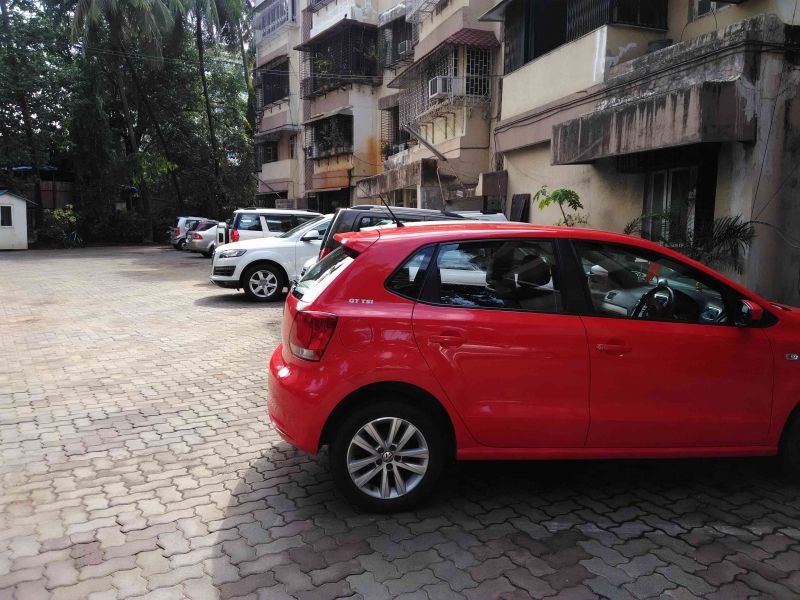ASUS Zenfone Live review: A smartphone for the selfie-loving crowd
The Zenfone Live is a phone that fails to be on the list of recommendation of top affordable smartphones.

The budget category is the most happening segment in the world of smartphones. You have full metal bodies, copious amounts of RAM and respectable camera sensors. However, a few years back, the budget smartphone category was littered with old, or low-cost processors, lack of essential features and extremely ugly as well as super bloated software interfaces. In a segment as messed up as that, ASUS was one of the manufacturers to disrupt the game with their offerings that had new-age specs, an appreciable build and a respectable software.
With the incursion of Chinese players, the segment turned into what we know it today. Giants of the smartphone industry are trying to keep up with the new competition through gimmicky features and ASUS is one of them. To battle the likes of Xiaomi and Motorola in the segment, ASUS’ latest handset in the budget category – the Zenfone Live. It is a product that carries a lot of high expectations for the brand to make space for itself. Does it deliver them as expected? Read on to find out.
In the world of technology, particularly smartphones, products evolve faster than a blink of an eye. The plastic shells on smartphones have given way to high-grade aluminium bodies and beautiful scratch-resistant displays. But ASUS chose to go otherwise and offer a light-weight polycarbonate unibody on the Zenfone Live.
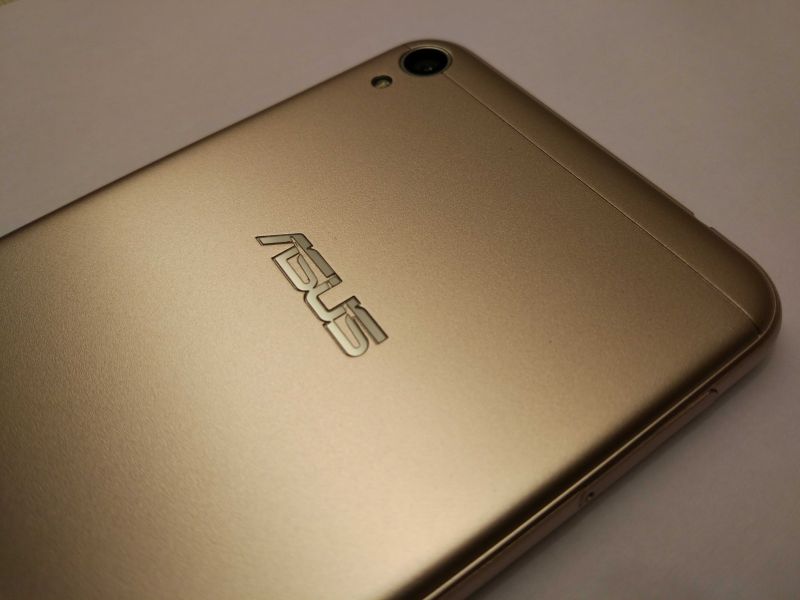
It sounds good on paper but certainly feels a lot cheaper on hands. The quality of the rear panel leaves a lot to be desired, especially with the gold coloured variant. ASUS even took the trouble to resemble antenna bands on a plastic shell. Sadly, the device has no metal frame within, and it tends to bend easily, which could be a disaster if you would accidentally leave it in your back pocket.
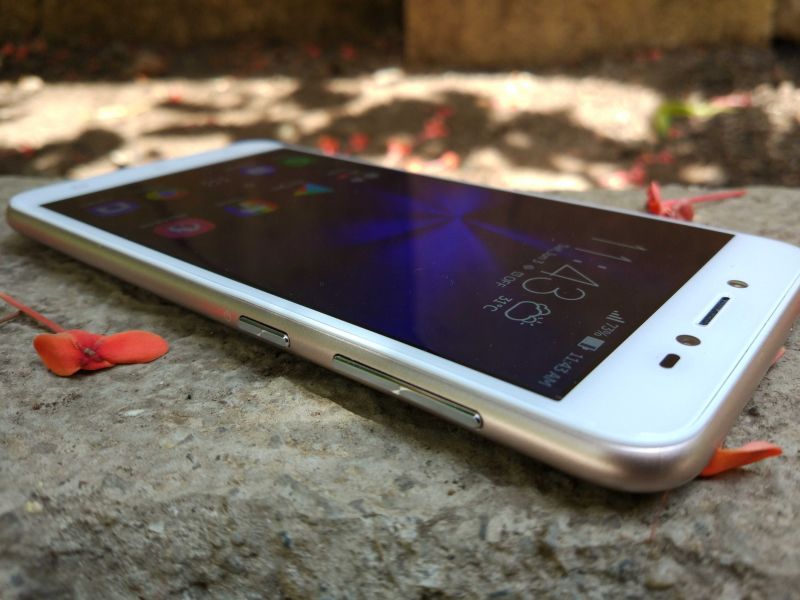
The phone tries to stand out with its blingy buttons on the side and large capacitive buttons on the front, that unfortunately doesn't light up. Speaking of the front, ASUS provides a 2.5D curved glass at the front which has a fingerprint resistant oleophobic coating.
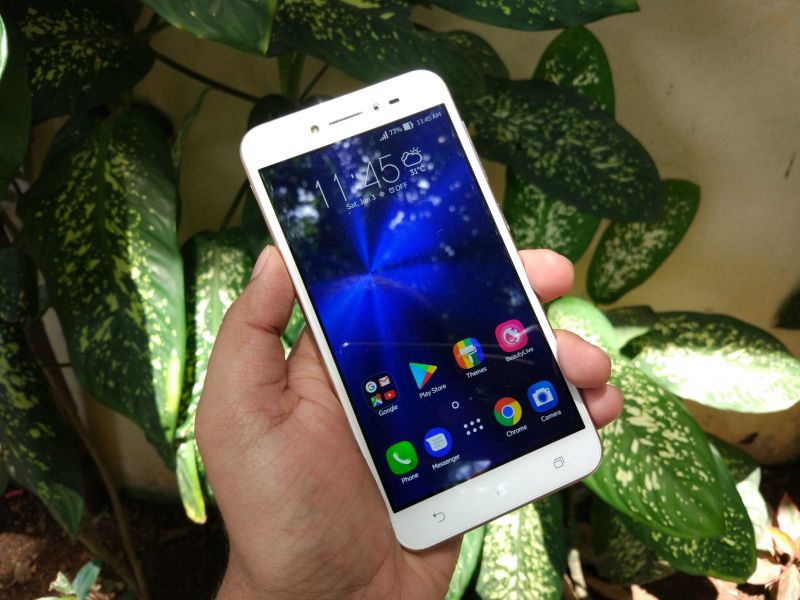
The Zenfone Live impresses us with its 5-inch IPS LCD HD display unit, producing crisp photos as well as vibrant colours. The display also works extremely well under direct sunlight, which is something that the Zenfone Live’s better-built peers could learn.
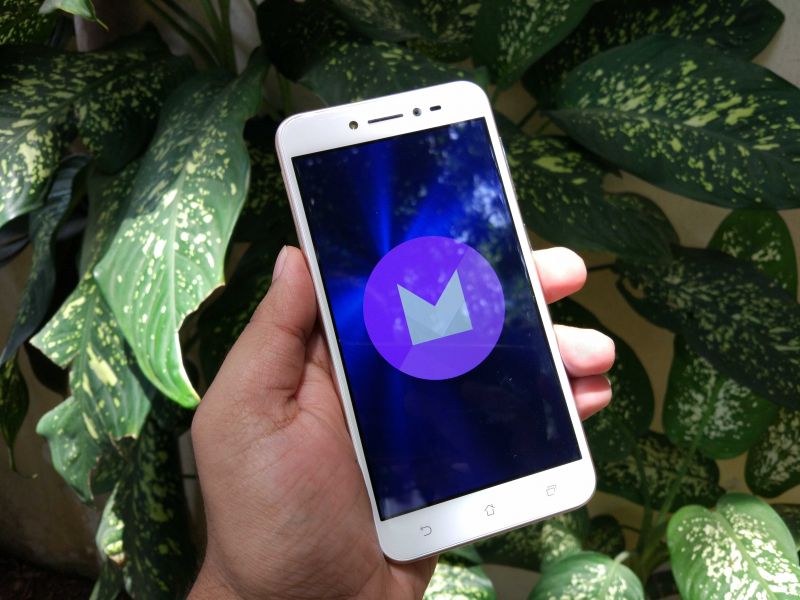
However, the interface on this great display, is not as impressive as we expected it to be. The Zenfone Live runs ZenUI based on an outdated Android Marshmallow, which could have been Nougat, for a phone as recent as this one. While the OS is known to be stable, the UI has loads of bloatware and unwanted apps and features. With inconsistent buttons and icons all around, it reminds us of the Samsung smartphones from the yesteryear.
At this point, we have to say that ASUS has done a commendable job at optimising the software for the outdated hardware it runs on. It is built around a Snapdragon 410 chipset coupled with 2GB of RAM and 16GB of onboard storage, which can be extended up to 128GB via hybrid microSD card slot. The chipset struggles to keep with the modern expectations of a consumer – apps take a considerable amount of time to load, especially the ones that are not made by ASUS.
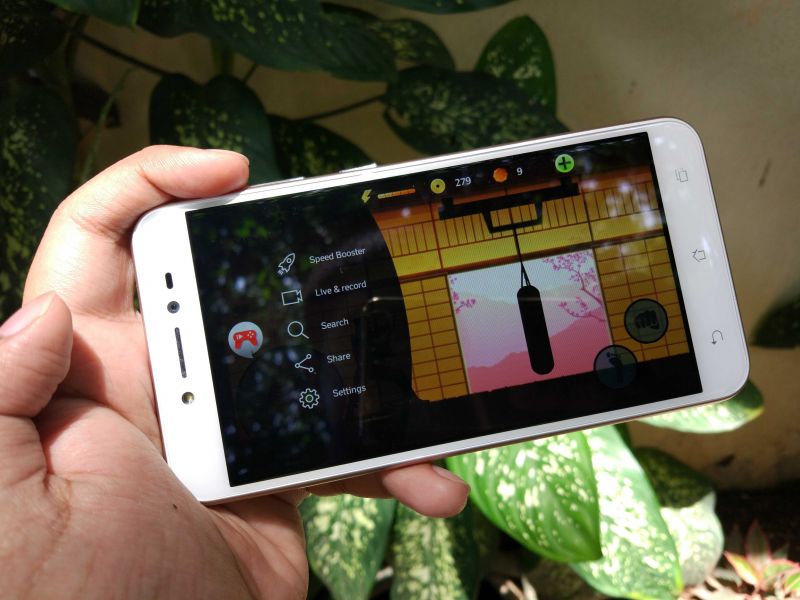
The age of the chipset comes to limelight when you launch new games. It is safe to say that you should limit yourselves to titles like Candy Crush, Temple Run 2, Shadow Fight 2 and NOVA Legacy, with Zen UI's gaming tweaks enabled. The device tends to heat up when trying to work with resource-intensive apps. The plastic body comes to the rescue to help keep the device's temperature at a comfortable level.
The main highlight of the Zenfone Live is its pair of cameras. The rear camera is a 13MP camera with an f/2.0 aperture. The sensor captures a great amount of detail and works well in broad daylight. However, we did notice that the pictures are either washed out in direct daylight or get oversaturated for certain colour tones. In low light, the pictures tend to get grainy, but is pretty much acceptable.
The front camera has a 5MP sensor with its own LED flash. If you are a person who loves documenting each and every moment of life through selfies and videos, you will be happy to know that the front camera performs satisfactorily. A lot of post processing happens to even out the skin tones, wrinkles and blackheads — in short, auto-beautification.
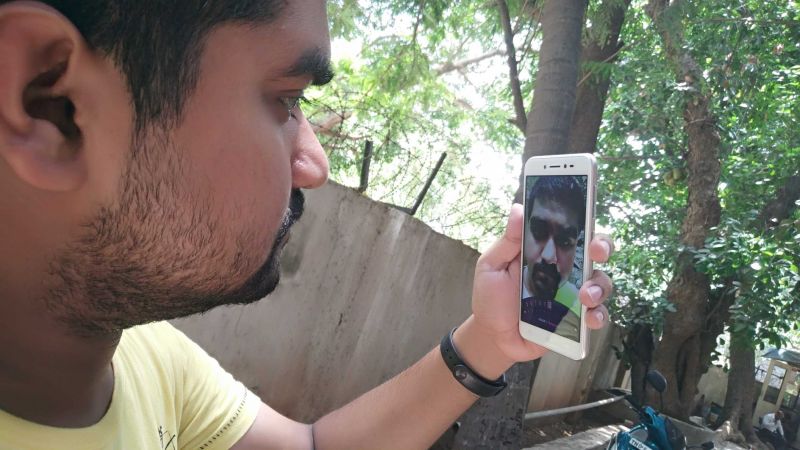
The highlighted ‘Beauty Live’ feature lets you add real-time beauty filters for conducting live videos, especially on Facebook, Instagram and YouTube. However, we felt that colour contrast was a little excessive and gets grainy when shooting indoors, which is bad for a selfie-loving user.
Moving on to the battery life, the 2650mAh battery is pretty decent in keeping the phone alive for almost a day. Under causal use, which involves a fair amount of calls, texting, internet browsing and photos, the Live can easily last around a complete working day. The battery charges very fast, even though there are no official claims about fast charging.
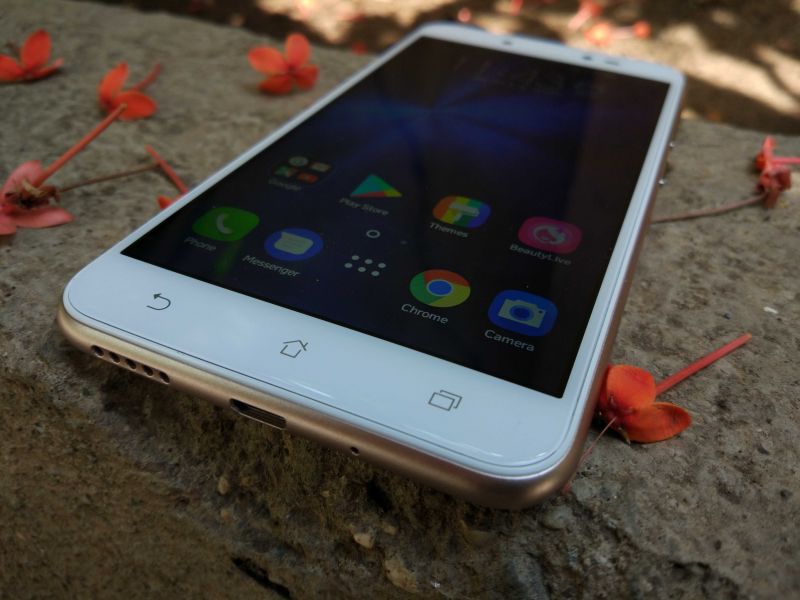
There are some features that require special mentions. ASUS has included noise cancelling microphones, which is rare in this segment. The audio output from the bottom mounted speaker is very loud, working positively in outdoor conditions.
Verdict:
The Asus Zenfone Live is a good opportunity for ASUS to target its rivals in the same price bracket. However, it feels like a half-baked product — ASUS could have done better with the Live. A better build, a little more attention to the rear camera, and build quality along with a more modern SoC could have lifted the value for the product by a huge margin. At Rs 9,999, the Zenfone Live seems a bit pricey, especially when comparing the specifications and build quality to rivals that are retailing at cheaper price tags.
(Source)


